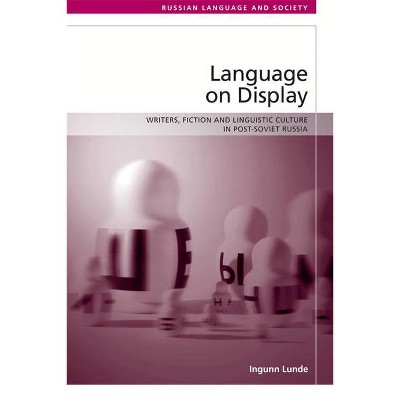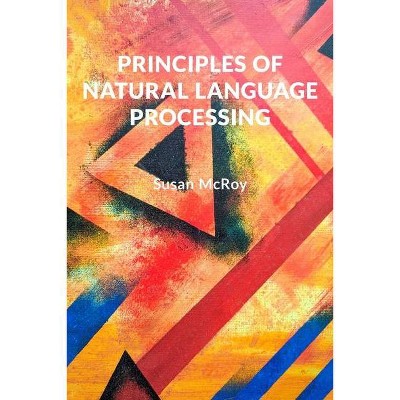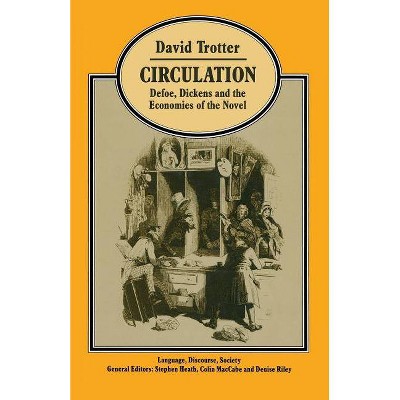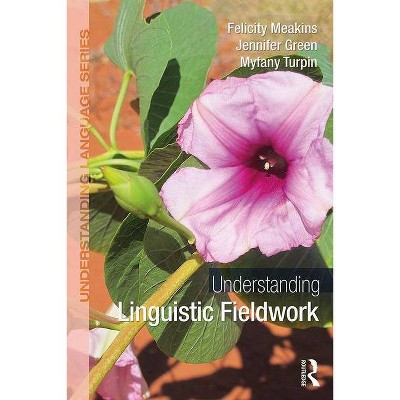Principles of Linguistic Change, Volume 2 - (Language in Society) by William Labov (Paperback)
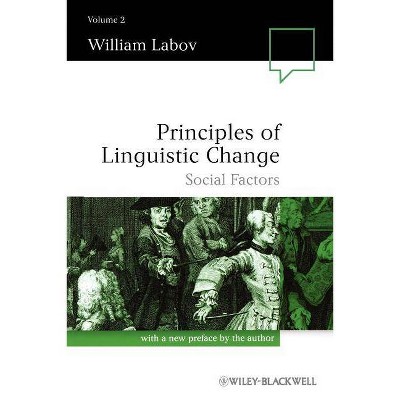
Similar Products
Products of same category from the store
AllProduct info
<p/><br></br><p><b> Book Synopsis </b></p></br></br>This volume presents the long-anticipated results of several decades of inquiry into the social origins and social motivation of linguistic change. <ul> <li>Written by one of the founders of modern sociolinguistics</li> <li>Features the first complete report on the Philadelphia project designed to establish the social location of the leaders of linguistic change</li> <li>Includes chapters on social class, neighborhood, ethnicity, gender, and social networks that delineate the leaders of linguistic change as women of the upper working class with a high density of interaction within their neighborhoods and a high proportion of weak ties outside of it</li> </ul><p/><br></br><p><b> From the Back Cover </b></p></br></br>This volume presents the results of several decades of inquiry into the social origins and social motivation of linguistic change. It includes the first complete report on the Philadelphia project designed to establish the social location of the leaders of linguistic change. These findings are developed further on the basis of a broad range of sociolinguistic studies in the 1980s and 1990s, as well as the recently completed <i>Atlas of North American English.</i> <br /> <p>Successive chapters on social class, neighborhood, ethnicity, gender, and social networks delineate the leaders of linguistic change as women of the upper working class with a high density of interaction within their neighborhoods and a high proportion of weak ties outside of it. Detailed portraits of individual leaders show that the women who lead linguistic change are distinguished from others by their general pattern of deviation from established norms of conformity. Mathematical models are developed to account for the linear incrementation of change in progress, and the transmission of change across generations.</p><p/><br></br><p><b> Review Quotes </b></p></br></br><br>A fine piece of qualitative sociolinguistic work that crowds decades of research into the social motivation of phonetic variation and change in some American English dialects... It will also provide rich methodological guidance and material data for scholars interested in the social underpinnings of sound change. <b><i>Multilingua</i></b><br /> <p><br /> </p> <p>William Labov's work is the cornerstone of quantitative sociolinguistics, and his pre-eminence in the field is assured for now and for some time to come. He has taught a whole generation of scholars the skills of careful and accountable fieldwork and of analysing linguistic data collected in the field, and in this respect his work has been inspirational. <i><b>Journal of Linguistics</b></i><br /> </p> <p><br /> </p> <p>It was the unanimous decision of the Committee to award this year's <i>Leonard Bloomfield Book Award</i> to Labov's book. The Committee feels this book is a landmark in the study of language change. It not only presents a coherent and compelling account of the internal mechanics of phonological change, but successfully integrates this account with theoretical advances in grammatical theory, sociolinguistics, and dialectology, as well as historical linguistics. Labov's scholarship in this work is unsurpassed and ranges from a proposed solution to the Neogrammarian controversy, to an account of the changing dialect situation in the United States, to proposals for applying the theory of lexical phonology to the explanation of a set of historical paradoxes, and to exploring the limits of functional explanation. <b><i>LSA</i></b><br /> </p> <p><br /> </p> <p>This is a book that anyone interested in social factors in language change will want to read. <i><b>Journal of Multilingual & Multicultural Development.</b></i></p><br><p/><br></br><p><b> About the Author </b></p></br></br>The author is Professor of Linguistics at the University of Pennsylvania. He is the co-editor of <i>Language Variation and Change and is author of Sociolinguistic Patterns</i> (1972), <i>Language in the Inner City</i> (1972), and <i>Principles of Linguistic Change, Volume 1: Internal Factors</i> (Blackwell, 1994).
Price History
Price Archive shows prices from various stores, lets you see history and find the cheapest. There is no actual sale on the website. For all support, inquiry and suggestion messagescommunication@pricearchive.us



